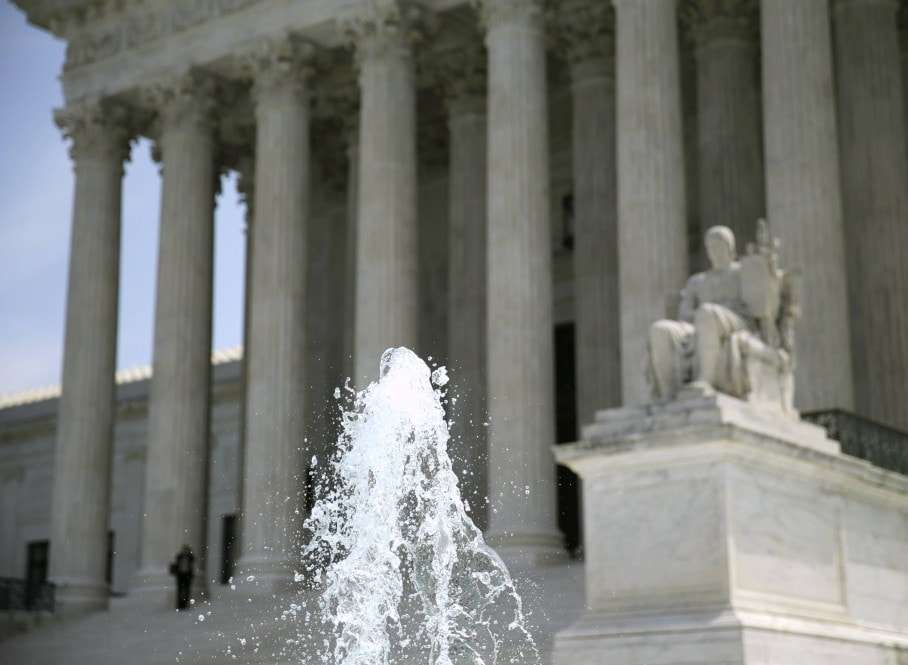The Volokh Conspiracy
Mostly law professors | Sometimes contrarian | Often libertarian | Always independent
POTUS seeks WOTUS redo

Yesterday, President Trump signed an executive order instructing the Environmental Protection Agency and U.S. Army Corps of Engineers to review and reconsider the controversial "waters of the United States" (a.k.a. WOTUS) rule adopted by the Obama administration in 2015, defining the scope of the federal government's regulatory jurisdiction under the Clean Water Act.
In 2001 and 2006, the Supreme Court rejected the EPA and Army Corps' overbroad assertions of jurisdiction under the CWA. Some states and landowner groups think that the 2015 WOTUS rule commits the same mistake. President Trump's new EO, and accompanying remarks, suggests that the new administration shares this assessment.
Trump's EO was hailed by WOTUS rule critics, but it will be some time before the effects of this EO are felt. As I discuss in this post for PERC, the order does not itself rescind the WOTUS rule - and it couldn't even if Trump had wanted it to. As a properly promulgated regulation, the WOTUS rule may only be rescinded or repealed through an administrative process similar to the one that led to its adoption. Put another way, since the EPA and Army Corps conducted a notice-and-comment rulemaking to promulgate the WOTUS rule, they have to go through a notice-and-comment rulemaking to revise or remove it. Accordingly, the EO instructs the Army Corps and EPA to "publish for notice and comment a proposed rule rescinding or revising the rule."
The EO goes further and instructs the two agencies to "consider interpreting the term 'navigable waters,'" as defined in 33 U.S.C. 1362(7), in a manner consistent with the opinion of Justice Antonin Scalia in Rapanos v. United States. This is interesting because Justice Scalia's opinion in Rapanos was on behalf of a four-justice plurality. The fifth, deciding vote against the EPA and Army Corps was cast by Justice Kennedy (surprise!), and he adopted a far more expansive reading of "navigable waters" than did Justice Scalia. Furthermore, as Justice Kennedy's opinion was the controlling opinion, lower courts largely relied upon his opinion in determining the scope of "navigable waters" in cases concerning CWA jursidiction in the years between Rapanos and issuance of the WOTUS rule.
If Justice Kennedy's opinion was controlling, and lower courts have applied it, how can the Army Corps and EPA adopt an interpretation reflecting Justice Scalia's plurality instead? The reason is that Rapanos was a Chevron step 2 opinion concerning the outer bounds of the EPA and Army Corps jurisdiction under the CWA, and neither Justice Kennedy's nor Justice Scalia's opinion purported to offer a determinative interpretation of the relevant statutory language. Both rejected the interpretation offered by the Army Corps and EPA as "unreasonable" and beyond the scope of the act, but neither said that the scope of the CWA was otherwise clear. Further, under Brand X, a validly promulgated regulation that offers a permissible interpretation of ambiguous statutory text trumps a court's prior interpretation of the same statutory language.
What this all means is that the Trump administration is free to adopt an interpretation of the relevant CWA language that is narrower than that offered by Justice Kennedy in Rapanos. They don't have carte blanche, but they do have a fair amount of leeway. For their new interpretation to be controlling, however, they will have to dot their i's and cross their t's. Specifically, they will have to make sure they conduct a full notice-and-comment rulemaking and adequately respond to the comments they receive, and then prepare for the inevitable lawsuits from blue states and environmental groups.
There is also the question of what to do about unresolved litigation challenging the WOTUS rule, including a jurisdictional dispute pending in the Supreme Court. The EO instructs the agencies to notify the attorney general of their actions so that the AG may inform courts in pending cases as he deems necessary. At this point, however, it's unclear what action the AG will take, particularly since the WOTUS rule has already been stayed by the U.S. Court of Appeals for the Sixth Circuit.
Bottom line: POTUS can sink WOTUS, but it will take some time and significant effort to accomplish.


Show Comments (0)